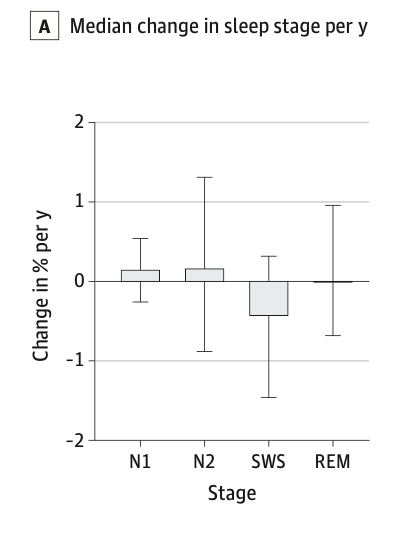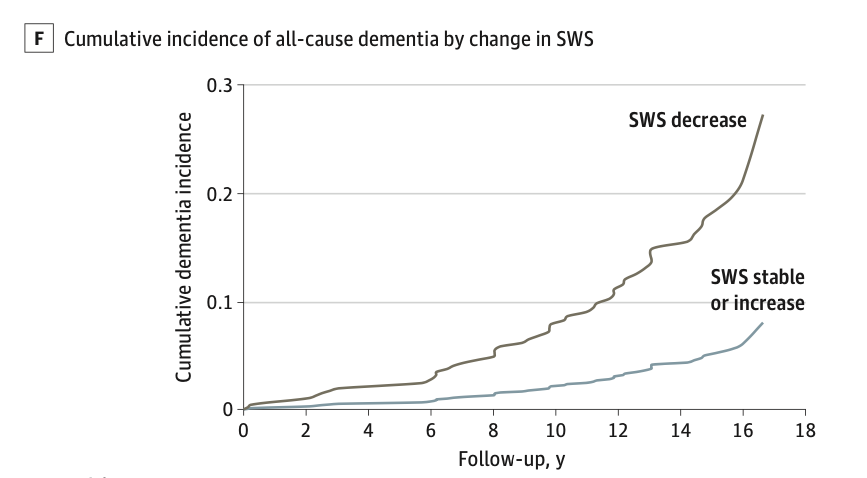This study evaluated the effects of age-related loss of deep sleep on the risk of dementia.
Key Points:
- Deep sleep declined with age
- Reduction of deep sleep was linked to dementia
“These data propose SWS (deep sleep) loss as a potential modifiable dementia risk factor.”
Study Evaluates Age-Related Loss of Deep Sleep on Risk of Dementia
Researchers analyzed data from two large-scale U.S. studies: the Framingham Heart Study Offspring and Omni cohorts.
Participants (n = 346) were at least 60 years old (average = 69 years) and did not have dementia or other neurological diseases.
The study included two in-home overnight sleep assessments: an initial evaluation and a follow-up assessment approximately 5.2 years later.
The incidence of dementia was monitored through surveillance of all participants for 12-17 years.
Deep Sleep Declined with Age
Researchers studied how different stages of sleep changed over time, with sleep assessments conducted about 5.2 years apart on average.
Notably, there was a significant decrease in deep sleep (SWS, slow wave sleep), a stage crucial for clearing waste from the brain.

This figure shows there was a small increase in the time spent in lighter sleep stages (N1 and N2) as individuals aged, while the time spent in REM sleep stayed relatively constant. Percentage of time in deep sleep (SWS) was decreased.
“In our study, the mean (SD) percentage of time in SWS (deep sleep) decreased by 0.57 (1.48) units per year.”
Decline in Deep Sleep Associated with Dementia
The researchers tracked the participants’ health for 17 years and found that reduction in deep sleep was linked to the risk of dementia.
“Each percentage decrease in SWS per year was associated with a 27% increase in the risk of all-cause dementia and a 32% increase in the risk of AD dementia.”

This figure shows that participants who experienced a decrease in deep sleep (SWS, dark line) showed a greater incidence of dementia. The incidence of dementia was lower in participants who had stable or increased deep sleep (blue line).
“These data extend an emerging body of research suggesting that SWS may be critically important for clearing metabolic waste”
Conclusion
This study found that aging was linked to a loss of deep sleep.
Participants who experienced a loss of deep sleep showed a higher incidence of dementia in during the 17 year study.
“These data from a community-based sample demonstrate that SWS percentage declines over time in adults 60 years and older and that greater declines are associated with the risk of future dementia.”
